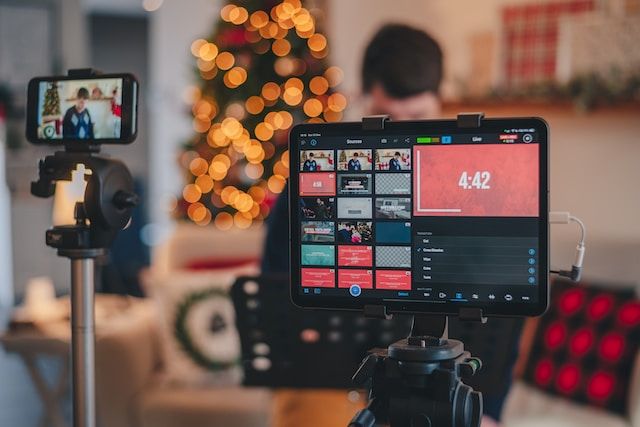Live Streaming Encoder Overview

Live streaming has become an increasingly popular way for businesses and individuals to connect with their audiences. One of the key components of a successful live stream is the encoder, which is responsible for taking your video and audio signals and transmitting them to your streaming platform.
When it comes to choosing an encoder, there are many factors to consider, including the type of content you will be streaming, the quality of your internet connection, and your budget. In this article, we will provide an overview of live streaming encoders, including the different types, their features, and some of the top encoders on the market.
Types of Live Streaming Encoders
There are two main types of encoders: hardware encoders and software encoders. Hardware encoders are standalone devices that are designed specifically for live streaming. They usually come with a variety of input options, including HDMI, SDI, and analog, and can support multiple streaming platforms. Hardware encoders are generally more reliable and offer better video quality than software encoders, but they can be more expensive.
Software encoders, on the other hand, are computer programs that allow you to stream your content using your computer's resources. They are usually less expensive than hardware encoders, and many of them are free to use. However, they may not be as reliable as hardware encoders and may require more technical knowledge to set up.
Features to Consider
When choosing a live streaming encoder, there are several features to consider. Here are some of the most important ones:
- Video quality: Look for an encoder that can deliver high-quality video, with support for resolutions up to 1080p or 4K.
- Audio quality: Make sure the encoder can handle your audio needs, with support for multiple channels and high-quality codecs.
- Input options: Check the encoder's input options to make sure it can handle your specific setup, including cameras, microphones, and other devices.
- Streaming platform support: Look for an encoder that supports the streaming platforms you plan to use, such as YouTube, Twitch, or Facebook Live.
- Price: Consider your budget when choosing an encoder. Hardware encoders can be quite expensive, while software encoders are usually less expensive or free.
Top Live Streaming Encoders
Here are some of the top live streaming encoders on the market:
- OBS Studio: A popular free and open-source software encoder with a wide range of features and support for multiple platforms.
- vMix: A feature-rich software encoder that offers a free trial and supports multiple input sources and output formats.
- Wirecast: A popular software encoder with a range of features and support for multiple platforms, including Facebook Live and YouTube.
- Teradek VidiU: A high-quality hardware encoder with support for multiple streaming platforms and input sources.
- AVerMedia Live Gamer Portable 2 Plus: A portable hardware encoder with support for 1080p60 video and a range of input options.
Choosing the right live streaming encoder is an important part of creating a successful live stream. By considering your specific needs and budget, you can find an encoder that offers the features and capabilities you require. Whether you choose a hardware encoder or a software encoder, make sure to test it thoroughly before going live to ensure a smooth and high-quality streaming experience for your viewers.
Another option for creating your own live streaming encoder is to use the Medialooks Video SDK. This software development kit allows you to build custom encoding software that meets your specific needs.
With the Medialooks Video SDK, you can access a range of features and capabilities, including support for multiple input sources, high-quality codecs, and various output formats. You can also customize the user interface and integrate with a range of streaming platforms.
Using the Medialooks Video SDK, you can create your own encoding software for use in a variety of applications, including sports broadcasting, live events, and online education.
